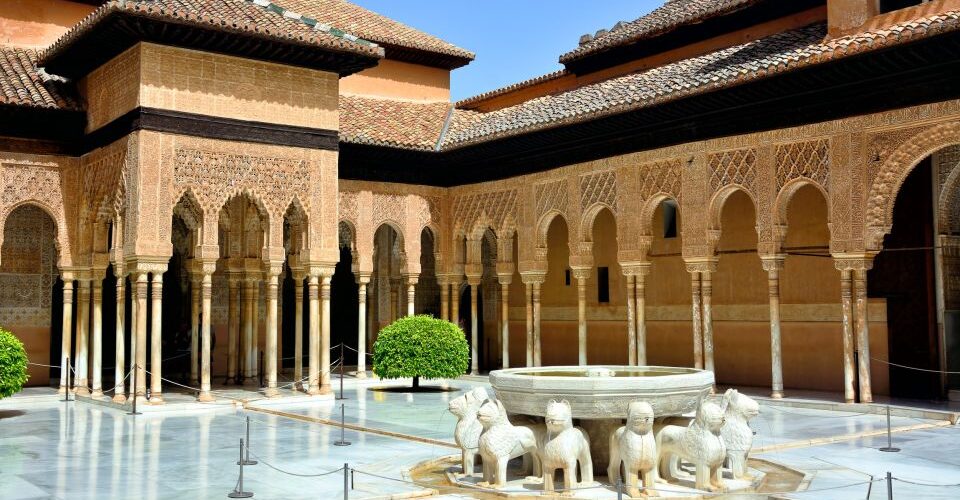Islam’s contribution in human civilization

An Analytical Overview of the Scientific Journey of Islamic Civilization and Its Impact on Global Progress
Introduction
It is impossible to discuss the advancement of human knowledge without pausing to recognize the contributions of Islamic civilization, which not only preserved and transmitted the knowledge of earlier civilizations but also critically assessed, refined, and expanded it. From the 8th to the 14th century CE, the Islamic world led global scientific progress in medicine, astronomy, mathematics, chemistry, philosophy, and architecture. These contributions laid the intellectual foundation that later fueled Europe’s Renaissance.
1. Features of the Scientific Project in Islamic Civilization
1.1 The Mosque as a Scientific Institution
The mosque was more than a place of worship; it functioned as an open university where various sciences were taught. Notable institutions like Al-Azhar in Egypt, Al-Zaytuna in Tunisia, and Al-Qarawiyyin in Morocco developed out of mosques and became centers of learning.
1.2 The Role of Translation in Reviving Knowledge
During the Abbasid era, the Islamic world witnessed a vibrant translation movement. Greek, Persian, and Indian scientific works were translated into Arabic at institutions like the House of Wisdom in Baghdad under scholars such as Hunayn ibn Ishaq and Yahya ibn Adi. These translations were not mere copies but accompanied by critical analysis and original contributions.
1.3 Establishing the Experimental Scientific Method
Muslim scholars are credited with establishing the empirical method based on observation, experimentation, and repetition. Ibn al-Haytham (Alhazen) was a pioneer of this method in his work Book of Optics, predating European scientific methods by centuries.
2. Major Scientific Contributions of Islamic Civilization
2.1 Medicine and Pharmacy
Muslim physicians excelled in surgery, ophthalmology, anatomy, and pharmacology:
-
Ibn Sina (Avicenna): His Canon of Medicine remained a standard reference in European universities until the 17th century.
-
Al-Razi (Rhazes): Distinguished between measles and smallpox and promoted the ethical practice of medicine.
-
Al-Zahrawi (Abulcasis): Authored an encyclopedia on surgery that influenced European surgeons.
2.2 Mathematics
Muslims significantly advanced algebra, geometry, arithmetic, and trigonometry:
-
Al-Khwarizmi: The founder of algebra and the one who introduced the concept of zero. The word “algorithm” is derived from his name.
-
Omar Khayyam: Solved cubic and quartic equations using geometric methods.
-
Al-Biruni: Made important contributions to spherical trigonometry and measurement techniques.
2.3 Astronomy
Muslim astronomers refined the astronomical models and developed precise instruments:
-
Scholars like Al-Battani and Al-Farghani created accurate star charts and solar models.
-
Observatories such as those in Maragha and Toledo played pivotal roles in celestial studies.
-
Astronomical tables like Zij al-Sabi’ were used for centuries by European astronomers.
2.4 Chemistry and Physics
Jabir ibn Hayyan (Geber) is regarded as the father of experimental chemistry. He developed techniques such as distillation and crystallization. Ibn al-Haytham revolutionized optics by proving that vision occurs through light reflecting into the eye.
2.5 Philosophy and Logic
Philosophers such as Al-Kindi, Al-Farabi, and Ibn Rushd (Averroes) integrated Islamic thought with Greek philosophy, emphasizing reason and ethics. Their works were studied extensively in medieval Europe and influenced Christian scholasticism.
3. The Influence of Islamic Civilization on the European Renaissance
3.1 Channels of Knowledge Transmission
Islamic knowledge was transmitted to Europe through Andalusia and Sicily. The School of Toledo played a key role in translating Arabic scientific texts into Latin, sparking intellectual revival in Europe.
3.2 Testimonies from Western Scholars
-
French historian Gustave Le Bon stated: “Arabs created one of the greatest civilizations, and wherever they ruled, they revived knowledge and urban development.”
-
Philosopher Will Durant remarked: “The Arabs had a profound impact on Europe in medicine, mathematics, and astronomy. European universities relied on their works.”
4. Ethical and Philosophical Values Guiding Scientific Progress
-
Seeking Knowledge as a Religious Duty: Science was viewed as a sacred pursuit.
-
Human-Centered Knowledge: Science aimed to serve human well-being.
-
Openness to Other Civilizations: Islamic scholars engaged critically with foreign knowledge, not dogmatically rejecting it.
-
Academic Integrity: Muslim scientists credited original thinkers regardless of their religion or nationality, demonstrating scholarly fairness.
Conclusion
The Islamic civilization offered a unique scientific model that harmonized reason and faith, theory and practice, and inherited wisdom with innovation. It was not merely a transmitter of knowledge but a creative force that shaped the course of human progress. By laying the foundations of empirical science and respecting human dignity, Islamic civilization remains a luminous chapter in the history of global science and ethics.
References
-
Ahmed Shalaby, Encyclopedia of Islamic Civilization, Dar Al-Nahda Al-Arabiya.
-
Ragheb El-Sergany, The Story of Medical Sciences in Islamic Civilization, islamstory.com.
-
Zaki Naguib Mahmoud, Renewal of Arab Thought.
-
Will Durant, The Story of Civilization, translated by Zaki Naguib Mahmoud.
-
Gustave Le Bon, La Civilisation des Arabes.
Keywords: Islamic civilization, Muslim scientists, history of science, Arab contributions, European Renaissance